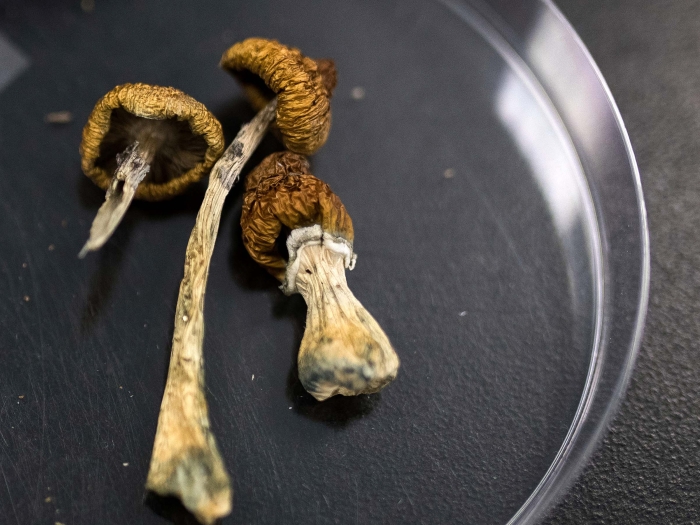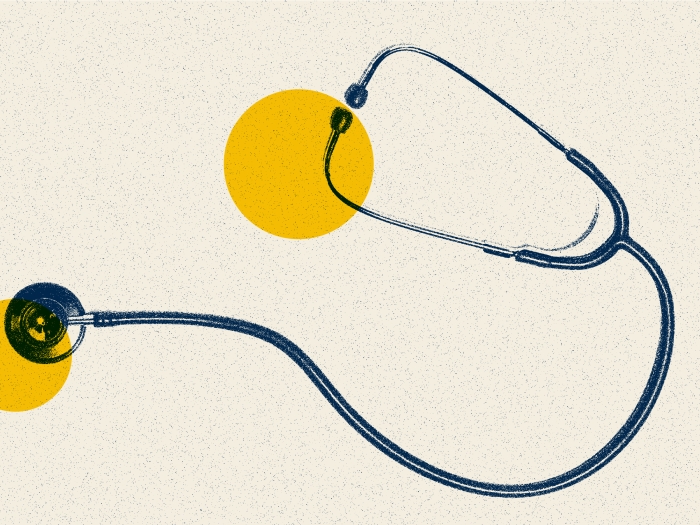For May’s Mental Health Month, an assistant research professor with U-M explains why it is important to think of mental health in a broader way.
1:00 PM
Author |

You already know that eating plenty of fruits and vegetables is beneficial to your body — but just how important are these foods for your mind?
Simon Evans, Ph.D., assistant research professor with the Department of Psychiatry at the University of Michigan, has been looking into the connection over the past several years.
Evans studies major depressive disorder, stress, anxiety, bipolar disorder and, more recently, the role of the gut microbiome and its dietary influences on mental health. He is interested in the effectiveness of nonpharmaceutical remedies to treat mental illness, including diet, sleep and exercise.
"Drugs do work for some people, but they fail for many," says Evans. "I'm interested in integrative approaches. Drugs used to be considered alternative choices, but now diet and exercise has been pushed to an alternative role. My research focuses on lifestyle approaches to address mental health."
The food-mood link
Today, we still have much to learn about the connection between food and mental health. What's known is there is an association between physical, mental and cognitive health. As the Alzheimer's Association puts it, "What's good for your heart is good for your head."
Brains do not live in a vacuum; they play by the same rules as other organs in your body when it comes to being healthy. It is important to understand the interaction between the body and the brain. We still have a long way to go to understand the full relationship, but we know that diseases like heart disease or diabetes often co-occur with mood disorders.
As part of this research area, doctors are beginning to understand the potential evils of too much sugar.
"Sugar activates the same section of the brain that cocaine does," Evans says. "There is addiction potential with sugar. It lights up the same circuits of the brain that some addictive drugs do."
Your gut and mental health
Recently, the gut microbiome, or the collection of microbes that live in the digestive tract, has become the focus of some research evaluating potential roles in mental health.
In one study, Evans examined nearly 250 microbiome samples using participants from the Prechter Longitudinal Study on Bipolar Disorder. He and colleagues analyzed the samples and found differences in the gut microbiomes from bipolar patients compared to healthy controls.
Sleep quality, anxiety, depression and mania in individuals with bipolar disorder were all related to the types of microbes in the gut, the team found. Other studies in depression have found similar results. The gut microbiome responds to your diet and may be connected to certain behaviors, such as emotions and sleep patterns, providing one way for diet to influence your mental health.
What to eat
"I don't like encouraging people to avoid specific foods; each person is different. The best advice I have heard is from [food writer] Michal Pollan: 'eat food, not too much, mostly plants,'" says Evans. "Keep it simple, and trust your instincts."
One nutrient that does have evidence supporting mental health benefits is omega-3 fatty acids found in nuts and fatty fish. Other healthy fats such as those from olive or canola oil and avocados have also been shown to be good for brain health.
Leafy green vegetables, whole grains and berries can be beneficial as well.
"The brain is 60 percent fat, you definitely need healthy fats in your diet," Evans says.
"I would avoid too much sugar and recommend no longer drinking soda — even diet soda has its own problems. Some foods are deceivingly high in sugar and not the health foods that many think they are, like yogurt. So make sure you read the labels."
Evans encourages individuals to think of their body like a race car — a highly tuned machine.
Many of our medical approaches try to fine-tune the engine, but neglect the fundamentals. If you continue to put sludge in the gas tank, the best tuneups in the world can only do so much. If you attend to the basics, such as diet, exercise and quality sleep, you are more likely to handle your ailments or respond to other treatments much better, Evans says.

Explore a variety of health care news & stories by visiting the Health Lab home page for more articles.

Department of Communication at Michigan Medicine
Want top health & research news weekly? Sign up for Health Lab’s newsletters today!





